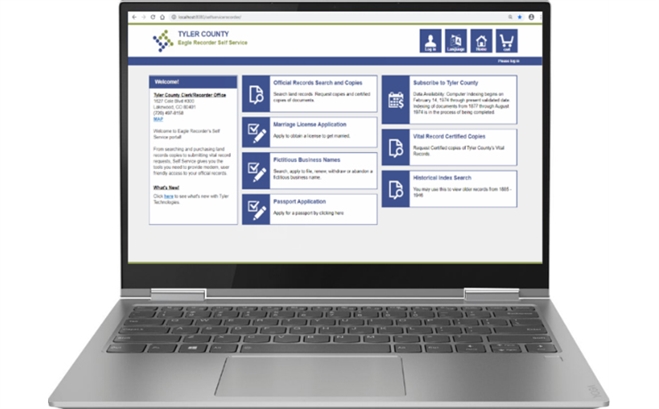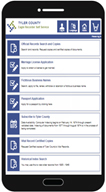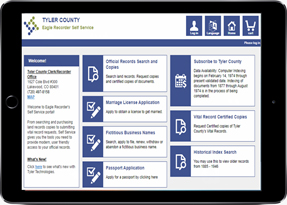Recording Offices Embrace Self-Service
December 03, 2020 by Mashal Babak

Self-service technology has exploded during the COVID-19 pandemic. Efforts to reduce person-to-person contact are noticeable everywhere. To get a coffee, I use an app on my smartphone to place, pay for, and check in for my order. Nearly all of my shopping, whether for electronics or other hobbies, are done on my laptop or phone from the convenience of my own home. These new ways of limiting in-person interaction are probably here to stay, and for good reason. Self-service options keep the public safe, but behind the scenes, they also create efficiencies that save valuable resources for the businesses themselves.
I’ve observed this win-win dynamic in local government recently. In places like Lyon County, Nevada, and Peoria County, Illinois, departments are using self-service tools in new and beneficial ways. Here’s a closer look at some of these wins:
Records Self-Service
Online records access benefited the public prior to the pandemic. The ability to search, download, retrieve, and purchase public records online, including from phones and tablets, removed hassles and simply made life easier. Online access to records eliminated common constituent frustrations including long waits in line, multiple phone calls, and the confines of nine-to-five office hours.


Lyon County, Nevada, used self-service to free up county resources and empower residents to become more involved in their local government. With records access from desktops, phones, or tablets, constituents no longer need to wait in line at the county office to research or request copies of deeds or other documents. This self-service option also strengthened the county’s relationship with title companies with advanced search capabilities that help the companies quickly find the information they need online.
Online access to digital records became essential with COVID-19. For counties with cloud-enabled technology solutions, business with records departments continued uninterrupted, or “business as usual.” Even as buildings remain closed, counties with self-service tools can help residents seamlessly conduct research, purchase copies of documents, and apply for business or marriage licenses, often faster than before. The ability to apply for marriage applications and attain marriage certificates remotely via video conferencing allows the county to provide even more of their services remotely.
For staff of those counties, the increased efficiencies of citizen self-service translate into significant time savings. With manual records requests drastically reduced, staff can reallocate time to more strategic work or important tasks that have sat on the back burner, such as scanning and indexing older records to enhance public access.
Going “Paper-Light”
Reducing paper use and eliminating the need for storage space are important benefits of digitizing records. When budgets are tight or uncertain, reducing paper saves money and electronic processes save time and staff resources.
Peoria County, Illinois, implemented new technology that digitized historical records, creating significant efficiencies. Today, the office that once staffed 10 employees to manage recordings now only needs four, with available personnel redirected to other areas of strategic importance. Scanning and indexing records online also eliminated the need for paper storage, helping the county go “paper-light.” Records dating back to 1825 are now scanned and organized in a familiar and intuitive electronic folder structure with detailed indexing that makes online searches as easy as possible.
Serving constituents virtually is certainly a public health priority, but with the proper tools in place, it also allows staff to work more efficiently and spend more time on higher-level tasks. Online operations and digital processes have the added benefit of reducing paper – important for both purchasing and storage considerations.
Moving forward, these enhanced services will ensure operational stability and better meet constituents’ expectations for fast, easy, and online interaction with government.
Contact the author.